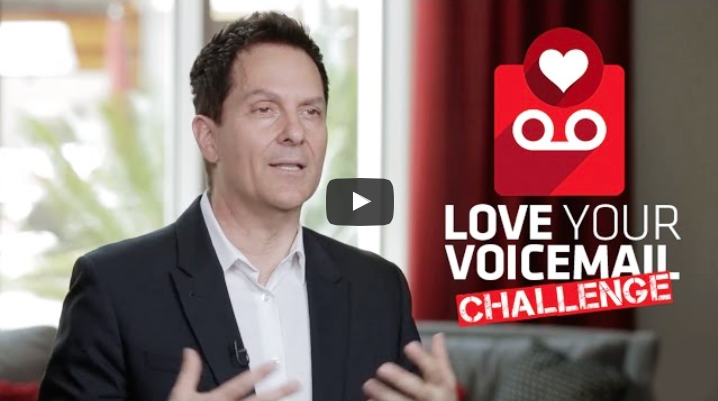There’s no worse feeling than being in a room full of people and being ignored. Suddenly, all of the paranoid thoughts start forming in your head:
Why do people ignore me all the time?
Why do friends ignore me when I need them?
Talk about self-esteem crushing. But before you shut down emotionally, there are subtle changes you can make to take you from an ignored wallflower to standing out in any meeting, dinner party, or social gathering- all with some simple shifts to your voice and how you speak.
There are quite a few reasons someone might be ignoring you. Here’s hoping these tips can give you some insight, tools, and inspiration so you can become the center of attention, or at least get a response.
1. Your Energy is Off
Sometimes your energy may not mesh with who you’re talking to. If you’re too high energy, people may get turned off. They may not want to match your energy so they may just ignore you. Especially if your energy is too intense.
Similarly, if you’re too low energy or reserved, people may ignore your attempts to enter a conversation to avoid having to do any “heavy lifting.” Having to ask follow-up questions or work to help you take up space may turn them off so they check out.
It never hurts to be mindful of your energy level. A conversation has ebbs and flows. Sometimes the key to being noticed is matching the energy of who you’re talking to and following where that conversation goes.
2. What You’re Talking About
Different people have different thresholds for what they feel comfortable talking about in public or in a group setting. Some people may have boundaries for what they want to talk about on a night out. Friday night may not be the best time to talk about political unrest or your latest health issue. No one likes to hang with a “Debbie Downer”.
The answer to “Why do friends ignore me?” just might be what you’re choosing to talk about and when you decide to share them. Conversations that are too heavy, scholarly, or dark just might get you ignored at the risk of ruining the fun. People may opt to ignore you because they have no other way to avoid a topic that might be “too much.”
Other people may hate small talk so they ignore generic questions for fear of getting stuck in a conversation they’d rather not have. Sometimes if you’re being ignored, it could just mean the person doesn’t have an interest in what you said or does not have the social tools to navigate what you mentioned. A simple shift in the subject just might help you rejoin the conversation.
3. Your Voice Lacks Strength
Did you know that human beings can tell upper body strength from your voice? A study by Aaron Sell showed that people could identify someone’s strength from their voice alone.
Sometimes, the tone, strength, or fullness of your voice can be a reason why someone can simply not hear you well in a crowd. If you want to bulk up your voice check out this YouTube video for a few tips.
4. You’re Saying “Don’t Listen To Me” Nonverbally
Social cues like avoiding eye contact can all cue another person to not listen. It’s a subconscious judgment of what you’re saying that tells your conversation partner that you think what you’re saying is unimportant.
If your body language is closed or withdrawn someone may listen to your social cues rather than your words. If you are looking away or sound uncomfortable, someone may want to make you feel better by giving you an “out” of the conversation.
If you’re avoiding eye contact, someone may interpret that as a lack of interest. They may take that as a cue that you want to be ignored or are ignoring them.
5. You’re Talking Too Much
Less is more. Sometimes talking too much can turn people off. This can seem like you’re trying too hard. Similarly, excess filler words like, “Um…,” “like,” and “uh” can make you seem like you aren’t sure or aware of what you’re saying.
Sometimes talking too much can cause people to check out of the conversation. Without being clear on how to proceed they may simply ignore you. Or they may be intentionally ignoring you so you can get the clue to dial it back.
While ignoring someone can feel intense, it’s often subtle and a gentle way to give someone a hint on how to continue the conversation.
6. Stereotypes
According to a study by Susan Fiske, stereotypes can play into conversation dynamics. Now more than ever our social differences and privilege are part of the conversation.
Sometimes, people opt-out of conversations by ignoring someone because they are too overloaded by oppressive behavior. They simply check out. Other people who have more social power may ignore someone as a form of dismissing them, based on a belief they are superior, or they think they already know what someone’s going to say.
7. It has nothing to do with you
Oftentimes, we personalize other people’s behavior. Maybe someone didn’t hear you or has a hearing issue. Maybe, they’re nervous and overcompensating or the music is too loud. It never hurts to give someone the benefit of the doubt.
When in doubt, feel free to repeat yourself. If someone reacts negatively or is rude, that just might be a sign that they’re not meant to be speaking with you.
A powerful voice can ensure you’re never ignored. If you want to work on having a dynamic voice, check out the classes and workshops available on Voiceplace. You deserve to be heard.





